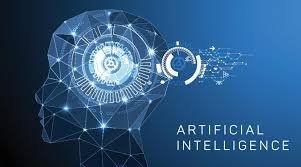The Impact of Artificial Intelligence (AI) – A Complete Guide
CONTEXT
Reworded Version:
Artificial Intelligence (AI) is revolutionizing sectors, reshaping businesses, and influencing everyday life From self-driving cars to virtual assistants like Siri and Alexa, AI is making tasks easier, faster, and more efficient. So, what precisely is artificial intelligence? How does it work? Who can use it, and what are its benefits?
In this article, we’ll explore AI in simple terms, covering its definition, applications, benefits, challenges, and future potential.
What is Artificial Intelligence (AI)?
Artificial Intelligence (AI) is the development of computer systems that can mimic human intelligence. These systems are designed to think, learn, and make decisions, allowing them to carry out tasks that usually require human reasoning, such as:
- Speech recognition (e.g., Siri, Google Assistant)
- Image processing (e.g., facial recognition in smartphones)
- Decision-making (e.g., AI-powered recommendation systems)
- Problem-solving (e.g., AI in healthcare diagnostics)
The classification of AI falls into three primary types.
Narrow AI (Weak AI) – Built to handle particular tasks, such as chatbots or voice assistants.
Advanced General-Purpose AI – A theoretical form of AI capable of performing any cognitive task that a human can do.
Super AI – Surpasses human intelligence (hypothetical).
How Does AI Work?
AI systems rely on large datasets and algorithms to function. Here’s a simplified breakdown of the process:
1. Data Collection
AI requires massive amounts of data to learn. This data can be:
- Text (emails, articles)
- Images (photos, scans)
- Audio (voice recordings)
- Videos (surveillance footage)
2. Data Processing & Training
AI models use machine learning (ML) and deep learning (DL) to analyze data.
Machine Learning (ML): Algorithms identify and learn patterns from data to make predictions or decisions.
Deep Learning (DL): Employs neural networks designed to simulate the functioning of the human brain.
3. Testing & Improvement
The AI model is tested repeatedly to improve accuracy. Feedback loops help refine predictions.
4. Deployment
Once trained, AI is integrated into applications like:
✅ Digital personal assistants
✅ Systems for identifying fraudulent activities
✅ Unmanned vehicles
Key Applications of AI
AI is used across multiple industries, including:
1. Healthcare
- AI-powered diagnostics (e.g., detecting cancer early)
- Robot-assisted surgeries
- Bioactive Agent Development
2. Finance
- Risk-based Fraud Analysis
- Computerized Trading Algorithms
- Credit scoring
3. Retail
- Individualized content offerings (e.g., Netflix, Amazon)
- Chatbots for customer support
- Inventory management
4. Automotive
- Self-driving cars (Tesla, Waymo)
- Data-Driven Equipment Servicing
5Scholarly Achievements
AI-Powered Personalized Learning Assistants
Automated Assessment and Grading Tools
Transformational Benefits
✅ Efficiency: Automates repetitive tasks, saving time.
✅ Accuracy: Reduces human errors in data analysis.
✅ 24/7 Availability: AI systems don’t need breaks.
✅ Cost Reduction: Lowers operational costs in businesses.
✅ Innovation: Powers breakthroughs in science and medicine.
Challenges & Risks of AI
Despite its advantages, AI has some concerns:
Job Loss Due to Automation: Some roles may become obsolete as machines take over tasks.
Bias in AI Systems: Inaccurate or unbalanced data can result in unfair or discriminatory outcomes.
Security Threats: AI technologies may be exploited to carry out cyberattacks or malicious activities.
Ethical Concerns: Privacy issues with AI surveillance.
What Lies Ahead for AI
AI is evolving rapidly, with advancements in:
🔹 Quantum AI – Faster computing power.
🔹 AI in Space Exploration – NASA’s autonomous robots.
🔹 Emotional AI – Machines understanding human emotions.
Experts predict AI will continue to grow, impacting every sector in the coming decades.
Concluding Statement
Artificial Intelligence is reshaping the world, offering incredible benefits while posing some challenges. AI is driving greater efficiency and innovation across sectors like healthcare and finance. As technology advances, responsible AI development will be crucial to maximizing its potential.
Will you join the forefront of the AI evolution?
Let us know your thoughts in the comments!
FAQs About AI
Q1. Can AI replace human jobs?
A: AI automates repetitive tasks but also creates new job opportunities in tech and AI management.
Q2. Is AI dangerous?
A: AI itself isn’t dangerous, but misuse or lack of regulation can pose risks.
Q3. How can I learn AI?
A: Start with online courses (Coursera, Udemy) in Python, Machine Learning, and Data Science.
Q4. How do Artificial Intelligence (AI) and Machine Learning (ML) differ from each other?
A: AI is the broader concept; ML is a subset where machines learn from data.
Would you like more details on any AI topic? Drop your questions below!
